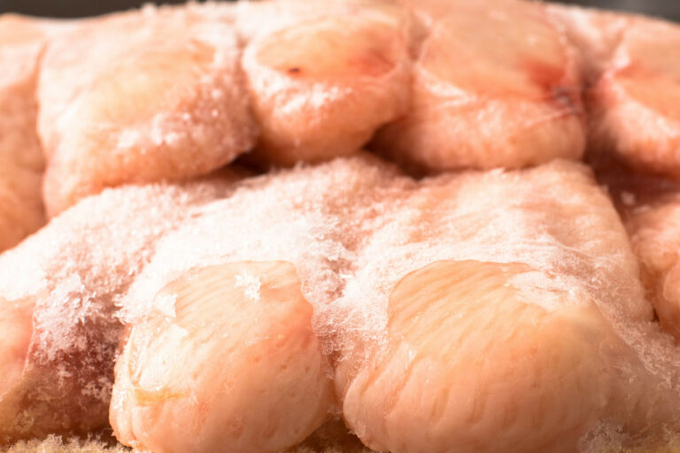May 23, 2025 | 21:02 GMT +7
May 23, 2025 | 21:02 GMT +7
Hotline: 0913.378.918
May 23, 2025 | 21:02 GMT +7
Hotline: 0913.378.918

A proposed solution would be for local farmers to slaughter and freeze poultry during times of peak demand to be released when the market situation becomes more favourable. Photo: Canva.
Egyptian poultry farmers are suffering financial losses for the second consecutive season due to government policy of allowing an overwhelming amount of frozen chicken imports to the country, Tharwat Al-Zaini, VP of the Egyptian Poultry Producers Union, said in a statement.
On average, Egyptian poultry farmers lose around 7 Egyptian pounds (US$0.14) per kg of chicken in live weight, Al-Zaini estimated. The government policy puts the very industry’s survival into question, he added.
In 2023, chicken meat production in Egypt is estimated at around 1.59 million tonnes, the official data showed. The country nearly doubled its chicken production between 2010 and 2019, but in the last 5 years, production performance has remained flat.
In June 2023, the Egyptian government temporarily abolished the duty on frozen chicken imports. Egypt primarily imports frozen chicken from Brazil, which accounts for the lion’s share of all deliveries.
Local traders said Brazil delivered around 200,000 tonnes of poultry to Egypt last year, substantially increasing overall imports. In addition to Brazil, Egypt also imports poultry from Thailand, Ukraine and the US.
Losses suffered
Currently, the production costs of broiler meat is about 74 Egyptian pounds (US$1.5) per kg. Meanwhile, the price of imported frozen chicken is about 66 Egyptian pounds (US$1.36) per kg. Although price dynamics are subject to daily fluctuations, Al-Zaini admitted that imposed poultry is consistently cheaper compared with those offered by local farmers.
Al-Zaini called on Egyptian authorities to find a solution, emphasising that the nation’s food security could be achieved only if local poultry breeders continued to operate.
Resilience in the poultry sector
Despite the challenges, the Egyptian poultry sector has shown remarkable resilience. It is a labour-intensive industry that contributes significantly to the state budget. Al-Zaini expressed confidence that these factors make the poultry industry a worthy recipient of government support.
Egyptian currency fluctuations over the last 2 years are partly to blame for the local farmers’ currency predicament. Al-Zaini admitted that importers appear to be more competitive pricewise compared with local farmers. Against this background, the industry often succumbs to a panic mood, with farmers selling their products at unreasonable prices, expecting the price situation to worsen further.
A call for more flexibility
One of the solutions for the government is to allow farmers to slaughter and freeze poultry during times of peak demand, to be released when the market situation becomes more favourable. The existing poultry industry regulations largely deprive Egyptian poultry farmers of switching between chilled and frozen poultry production.
Imports no longer necessary
In addition, Al-Zaini expressed confidence that if the Egyptian government decided to suspend imports, consumers would be unlikely to feel the impact. Local farmers could quickly expand operations and fill the gap. He added that no price hikes are expected since the Egyptian poultry market largely remains controlled by the state.
(Poultryworld)

(VAN) Alt Carbon has raised $12 million in a seed round as it plans to scale its carbon dioxide removal work in the South Asian nation.

(VAN) Attempts to bring down the price of the Japanese staple have had little effect amid a cost-of-living crisis.

(VAN) Fourth most important food crop in peril as Latin America and Caribbean suffer from slow-onset climate disaster.

(VAN) Shifting market dynamics and the noise around new legislation has propelled Trouw Nutrition’s research around early life nutrition in poultry. Today, it continues to be a key area of research.

(VAN) India is concerned about its food security and the livelihoods of its farmers if more US food imports are allowed.

(VAN) FAO's Director-General emphasises the need to work together to transform agrifood systems.

(VAN) Europe is facing its worst outbreak of foot-and-mouth since the start of the century.